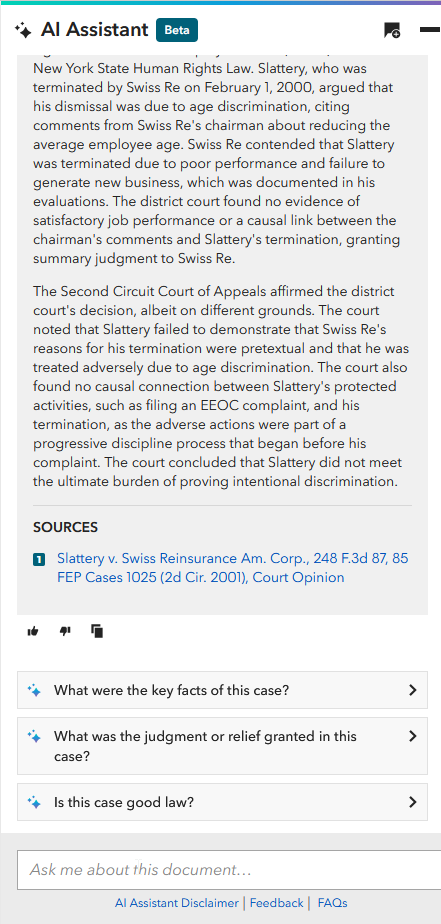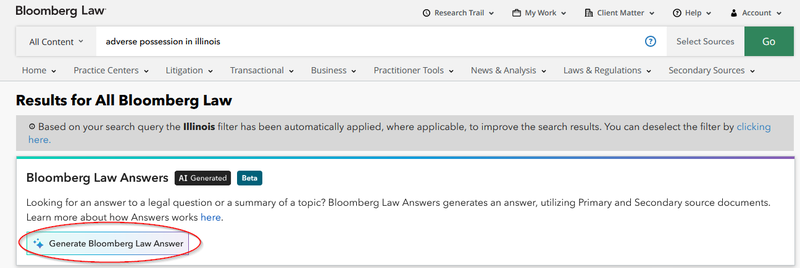January 2025 D'Angelo Law Library Emerging Technologies Update
Bloomberg Law Launches New AI Features
Bloomberg law has released two new generative AI-powered features: Bloomberg Law Answers and Bloomberg Law AI Assistant.
AI Assistant summarizes documents and permits the user to ask follow-up questions about the document. To use it, click on the “summarize document” button on the upper-right side of most Bloomberg Law documents:

This will bring up a sidebar with an AI-generated summary of the document and a text box to permit asking questions about the document. It also suggests some questions you might want to ask based on the type of document summarized.

Answers provides a summary of the results of a search in paragraph form, citing its sources. To use it, perform a search as normal using the Bloomberg Law search bar. On the results page, click on “generate Bloomberg Law answer” to create the summary.


Illinois Supreme Court Policy on Artificial Intelligence
The Illinois Supreme Court has released a Policy on Artificial Intelligence, effective as of January 1, 2025. The policy is relatively short (one page). It states that the court is “[e]mbracing the advancements of artificial intelligence” but that attorneys, judges, and self-represented litigants remain accountable for their final work product and must “thoroughly review AI-generated content before submitting it in any court proceeding.” Notably, the policy states that use of AI in legal work should not be discouraged, and disclosure of AI use should not be required in a pleading.
Recent Opinion provides survey of sanctions for use of AI-hallucinated cases.
Magistrate Judge Chi Soo Kim of the Eastern District of California has issued an opinion issuing sanctions on an attorney for, among other things, filing a brief containing nonexistent cases likely hallucinated by AI. Pages 24-26 provide a helpful overview of the range of sanctions that have been issued in similar cases. The case is United States v. Hayes, 24-cr-0280 (E.D. Cal. Jan. 17, 2025).
Further Assistance
If you are interested in learning more about emerging technologies, including their use in legal research, education, and practice, please see our research guide on generative AI, request a research consultation with a D'Angelo Law Librarian, or chat with us at Ask a Law Librarian.


